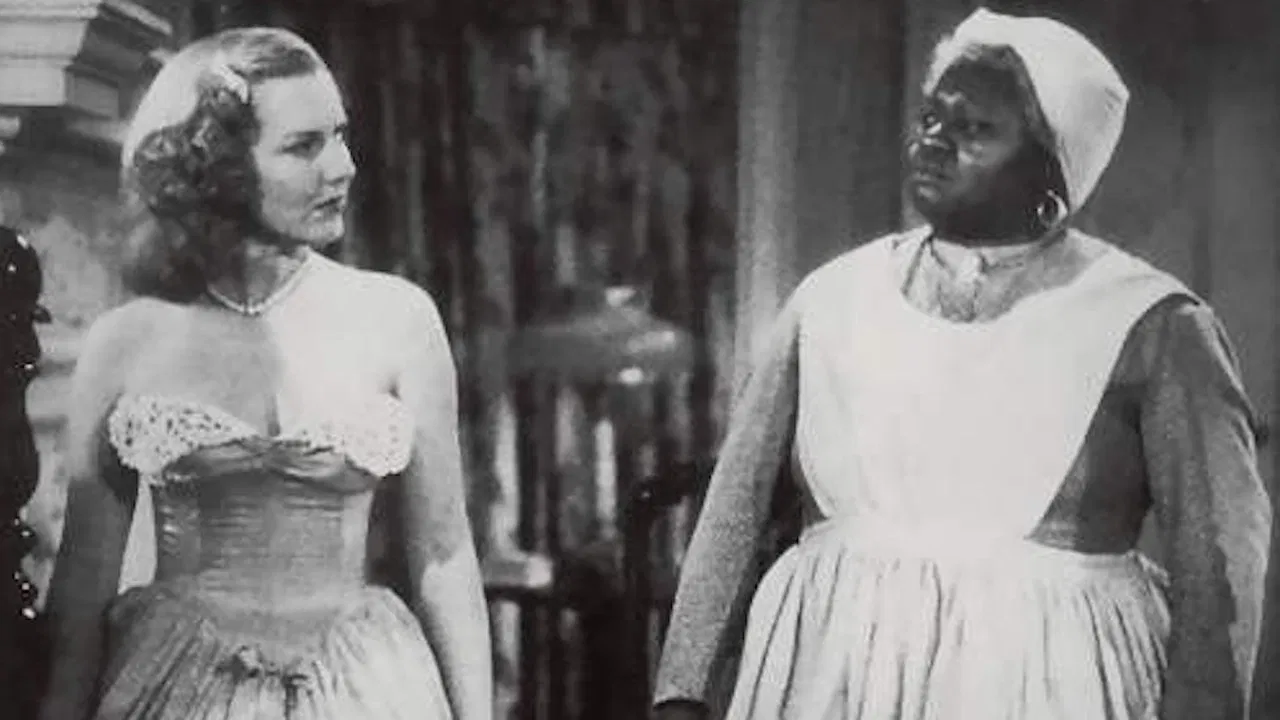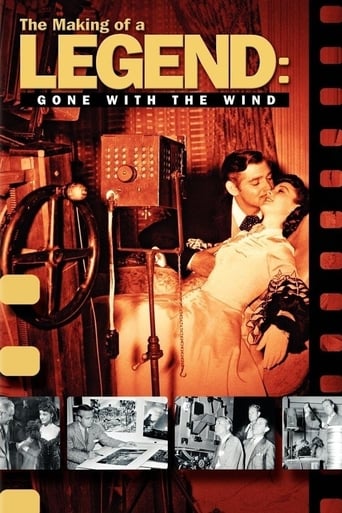

Only watchable because of its subject matter. You would think that the "Making of..." one of the greatest and most epic movies of all time would be incredibly interesting. Well, to movie buffs like me it would, at least. However, this documentary is mostly quite dull. Maybe it is Christopher Plummer's deadpan narration, or the fact that far too much trivial information is included. There is no sense of the art and history that is being made. It's all just too matter-of-fact...Still, great subject matter, and worth watching for that alone.
... View MoreThis is perhaps the best 'making of' documentary I have ever seen. This is incredibly impressive considering the gap of almost 50 years between the debut of "Gone With The Wind" and this documentary. Usually, the longer the interval between films, the less thorough the making of film is--but this is not the case here, as the film is approximately two hours long. Now most of the actors involved in making the original were either dead or declined to participate, yet this didn't hurt the film because there was so much tremendous background material that kept it all interesting from start to finish. The narration by Christopher Plummer was lovely, the few guest appearances were very nice and the gobs of wonderful hidden gems (such as showing the scenes with and without the matte paintings) make this come alive. If you love "Gone With The Wind", then you must see this film made for Turner Classic Movies---it will keep your interest from start to finish and have you marvel at how all the pieces actually came together. See this film!
... View MoreSelznick himself would have given his highest rating of approval to this fascinating documentary which traces the birth of the Margaret Mitchell novel through its publication and on to Hollywood, where it became a major chore for David O. Selznick to wittle the 1,000 page novel into a workable screenplay. Selznick's work habits are examined at length and the kind of stress his perfectionist behavior gave everyone around him is understandable. But his persistence paid off and, of course, the end result was all anyone could hope for.Having read many books on this subject, I can assure you this is a project that is well worth viewing for anyone who has more than a passing interest in the making of the film. There are some interesting and revealing comments by George Cukor, the original director on the film who was fired after a few weeks of filming but still remained on good terms with Selznick after Victor Fleming took over.Most interesting aspect are a series of tests made by various actors and actresses under consideration for roles--most of whom were highly unsuitable if the tests are to be taken seriously.Missing among the cast members who speak about the film is Olivia de Havilland, who was probably too heavily involved in personal matters at the time this was being put together and could not find time to make her contribution--which would have been a significant one. Fortunately, she turned up for last year's DVD release of the film in a segment called "Melanie Remembers". But Evelyn Keyes and Ann Rutherford do a nice job of describing some behind-the-scenes events as well as the initial premiere of the film in Keyes' home town of Atlanta. Butterfly McQueen recalls what it was like to play Prissy.Excellent commentary by Christopher Plummer is a definite plus, and the well written script gives the viewer a complete feeling of what it was like for everyone involved in the making of this great classic. By the time it reaches the film's world premiere reaction, you will be thoroughly involved and entertained by the interesting presentation of facts. As an added bonus, much of the documentary is accompanied by selections from Max Steiner's massive score.Summing up: A documentary you can't afford to miss.
... View MoreThe great ingenuity and care taken in the preparation of this documentary (over 2 hours in length) reveals the love that the people involved had for this project. It is filled with detail from valuable primary sources: letters, memoes, telegrams, production records, story boards, photographs, voice recordings, film (including home-movies and screen tests, as well as the more usual news footage, outtakes, and movie clips), interviews with those still living, and even employs the actual typewriter Margaret Mitchel used to write her novel. It is unusually well written and edited, and offers many interesting parallels between sentiments expressed by characters in the film and the feelings and motivations of the people who worked on it, via the judicious juxtaposition of clips from the movie with the documentary material. The VHS videotape may not be readily available. I got it from the NY Public Library. Hopefully, this production will be reissued on DVD.
... View More